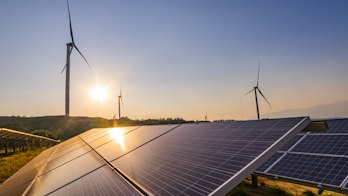The Netherlands
The Netherlands plays an important role as a hub for the global energy trade. The primary focus of Dutch energy policy is transitioning to a low carbon energy system. The 2019 Climate Act sets legally binding targets to reduce greenhouse gas emissions (GHG) emissions by 49% by 2030 and by 95% by 2050 (compared to 1990 levels) and for 100% of electricity to come from renewables by 2050.
Read more
Despite successful decoupling of economic growth from GHG emissions, the Netherlands remains reliant on fossil fuels. Numerous measure have been introduced to support decarbonisation. The Stimulation of Sustainable Energy Production scheme uses competitive auctions to award subsidies to renewables, hydrogen and carbon capture, based on avoided CO2 emissions. An offshore wind roadmap is driving rapid deployment and aims for 11.5 GW of capacity by 2030, while strong innovation programmes support deployment of key decarbonisation technologies.
Last updated Dec 16, 2021

Key energy statistics
The Netherlands data explorer
Analysis
-
The Netherlands 2020
Energy Policy Review

-
Renewables 2020
Analysis and forecast to 2025

-
The Netherlands’ Effort to Phase Out and Rationalise its Fossil-Fuel Subsidies
An OECD/IEA review of fossil-fuel subsidies in the Netherlands
-
Netherlands' legislation on oil security
Part of Oil Security Toolkit
-
Energy Policies of IEA Countries: Netherlands 2004
Energy Policy Review
-
Energy Policies of IEA Countries: Netherlands 2000
Energy Policy Review
Latest news
Policies
Policy
Country
Year
Status
Jurisdiction
-
Netherlands 2022 In force National